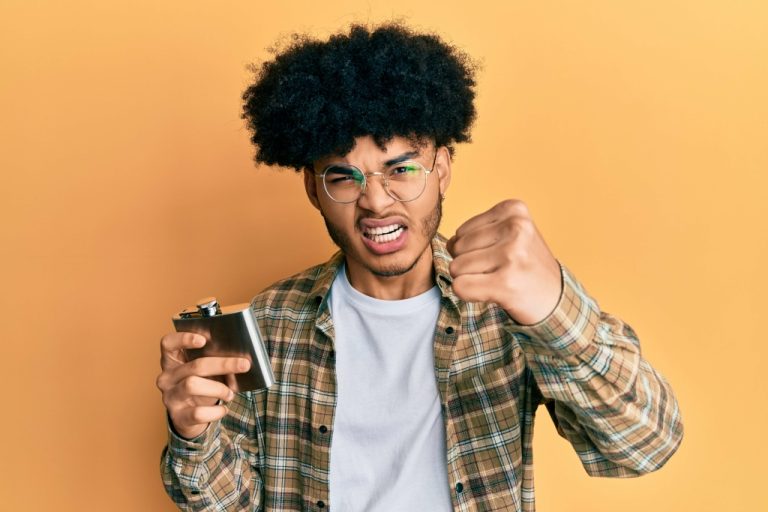Alcohol and Anxiety: How Drinking Can Cause Panic Attacks?
Talk to your doctor about medications, therapy, and support groups that can help you manage your alcohol consumption. Whether you have a mental health condition like anxiety or not, certain behaviors can signal that your relationship with alcohol could cause concern. Even can alcohol cause panic attacks if someone starts drinking alcohol as a way to cope with anxiety, it can quickly have the opposite effect. For one, drinking alcohol more frequently or having larger amounts can cause hangovers. Alcohol can produce a sense of euphoria and decrease a person’s inhibition.

But trying to relax with a drink or two may not give you the long-term anxiety relief you want. Although there is no evident source for anxiety, these symptoms are interpreted by the brain as stress and worry due to biofeedback. Thus, small things may easily upset them, and certain words or actions may be misunderstood. Something that would normally be ignored will now trigger paranoia and panic.
Sex and gender terms
For instance, if you panicked and ran out of your house, crossing the street without checking for cars first. Try to focus on steadying your breathing by taking deep breaths in and out. Read our review of the best online therapy options to find the right fit for you.
4 of the Most Horrifying David Fincher Movie Moments – Bloody Disgusting
4 of the Most Horrifying David Fincher Movie Moments.
Posted: Thu, 09 Nov 2023 16:13:21 GMT [source]
Panic attacks are relatively common, with one article stating that around 13% of people will experience one in their lifetime. When these symptoms become overwhelming, the person might have an alcoholic drink to try to calm down. They might also consume alcohol at the gathering to feel more relaxed or less inhibited around others. But other types of stressful situations can also trigger the same responses as immediate physical danger — such as a big presentation at school if you fear public speaking. Not all panic attacks have the same symptoms or the same intensity. Unexpected panic attacks aren’t usually linked to a specific thought, event, or stimulus.
Symptoms and Causes
“Stopping sooner, or substituting non-alcoholic drinks can reduce the total load of alcohol on the body,” he says. There are also ways to minimize the severity of a hangover overall, which yes, start with drinking less alcohol, according to the Cleveland Clinic. The organization recommends having no more than one drink per hour and alternating alcoholic drinks and plain water.
- “Just remind yourself it will pass, you’re not going to die from it.”
- Society would have us believe that there’s no better way to unwind after a long day than by drinking a glass of wine, cold beer, or sipping your go-to liquor.
- The NCS-R reported 2.7 percent of people reported having panic disorder within the past year.
- Often, they change their behaviors and habits so much that it interferes with daily activities.
- Panic attacks are a central symptom in panic disorder, which is a diagnosable mental health condition, but they do not constitute a diagnosis on their own.
Long-term alcohol abuse can not only induce panic attacks but can also lead to PTSD. This becomes even more true if a person has an anxiety or panic disorder. Alcohol not only contributes to anxiety but rewires the part of the brain responsible for coping with fear.
What is anxiety?
Your partner, parents, children, friends, employer, coworkers, doctor, or therapist might confront you about your drinking habits or your behavior when you drink. When someone first has a drink of alcohol, it often has a sedative effect. When you face a threatening stimulus, that information is sent to the amygdala. In turn, amygdalae alert other parts of your body to trigger your fight, flight, or freeze response.
Left untreated, panic attacks and panic disorder can affect almost every area of your life. You may be so afraid of having more panic attacks that you live in a constant state of fear, ruining your quality of life. If you experience ongoing or regular panic attacks, treatment can include psychotherapy, such as cognitive behavior therapy, and medications such as anti-depressants or anti-anxiety medications. People with panic disorder have higher rates of cardiac conditions, including hypertension (high blood pressure) and cardiomyopathy.
Traditional ways of treating anxiety
While some people may believe that wine and beer may cause less anxiety than hard liquor due to its alcohol content, this is not true. It’s not necessarily the type of alcohol you drink that can affect your levels of anxiety, but rather anxiety is related to the amount and frequency of alcohol use. If you take medication for anxiety, or you take anti-inflammatory drugs or narcotics, drinking can cause problems with anxiety. You can become agitated and jittery because your body is busy processing the alcohol, which neutralizes the effect of these medications. Even one drink can interrupt the natural cycles of sleep, causing a nervous or irritable feeling the next morning. Alcohol is a mild anesthesia and will put you in the mood for sleep — at least initially.
